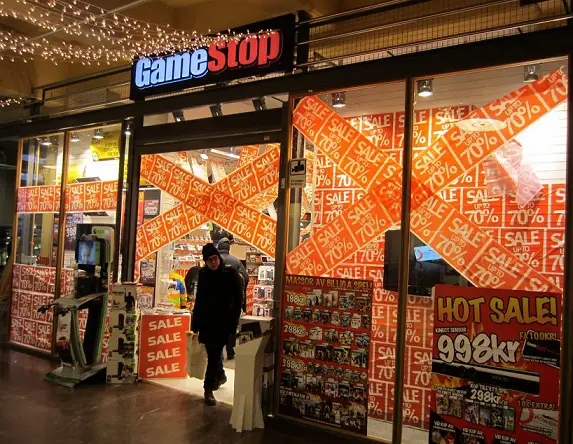Researchers at Jeffries are arguing GameStop’s stock (GME) may be dead money for the foreseeable future unless the company can present Wall Street with compelling evidence otherwise.
Jefferies analyst Andrew Uerkwitz wrote in a new client note, “Long-term growth prospects and lack of communication from management remain a key source of speculation. We take a prove it approach, as we are not currently modeling profitability until 4Q23. This message is a clear shift from early 2022 when investors were encouraged by management to focus on long-term growth over near-term margins. To us, this signals that turnaround-related investments have lacked expected demand traction, the growth path carries more risk, and GameStop is recognizing that investor’s priorities under current market conditions have shifted.”
They argue that after over a year of Gamestop CEO Matt Furlong, and Chairman Ryan Cohen seeking to reinvent the gaming retailer in a secret process, the experiment appears from the outside to be failing.
Net sales plunged in the third quarter by 8.5% from the year prior, with sales dropping in the hardware/accessories and software businesses, which is responsible for 82% of annual sales at GameStop.
Gross profit margins year over year were unchanged, and the retailer endured a $95 million adjusted operating loss. Over the past year, the company lost $354.9 million on an adjusted operating basis.
Part of the company’s difficulties are arising from the utter crash in the once-thriving digital asset market, which the company’s leadership team had been hoping to capitalize upon. The company had formed a strategic partnership with now defunct cryptocurrency exchange FTX.
Like many tech companies in the cooling economy, GameStop has now transitioned from a company of big plans, to cost-cutting mode, as it frantically tries to improve its profits to appease the retail investors which are continuing to prop up the stock price.
Jefferies Uerkwitz warned, “Cash burn continues to be our #1 concern until profitability is proven, and we take our price target to $20 on 0.85x sales + cash per share. While the multiple sits below peers in digital commerce, gaming, and retail, we shrink our valuation on increased market slowdown, slowing growth assumptions, and lack of clarity into the success of investment initiatives.”

